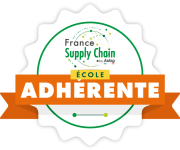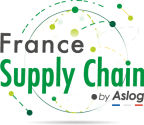
BUT (Bachelor of Technology) Quality, Industrial Logistics and Organization (QLIO)
IUT

The BUT QLIO trains students to take part in collaborative engineering approaches, in a global context of life-cycle management and continuous improvement, whatever the industrial or service sector. The core curriculum prepares students to master product and process quality, manage physical and information flows, and organize the production of goods and services.
2600 hours of training, including 600 hours of project work.
Admission
Eligibility criteria
- Holders of a general baccalaureate (possibly with a scientific specialization), technological baccalaureate (STI2D, STL, STAV, STMG, etc.) or vocational baccalaureate (with skills in the target field), or any other equivalent diploma.
Admission process
- Admission to the course is possible in all 3 years: in the first year via the national ParcourSup platform, in the second and third years directly with the IUTs operating the courses (dossier and possible interview). In addition, some IUTs offer work-study programs right from the first year of training.
Training costs
- 170 euros.
You will also have to pay the student life contribution (CVEC) of 95 euros. But you won't have to pay anything if you have a scholarship or a professional training contract.
Where students come from
- BUT QLIO welcomes all nationalities (minimum B2 level in French).
Teaching
Domains
- Supply Chain
- Logistics
- Transport
- Digital
Main themes
- This training aims to develop three essential skills:
- Implement a quality management system, plan and conduct audits,
- Select the information system and adapt the flow management method to the context,
- Organize a production unit and develop the company within the framework of Lean management.
- Four courses are then offered from the second year onwards:
- Production Management (MP): This generalist course enables students to organize, manage, improve and lead production processes for goods and services. They will be able to propose improvements with the aim of ensuring quality to meet customer requirements, in compliance with regulations. This skill involves managing, coordinating and leading logistics and quality teams.
- Organization and Supply Chain (OSC): This course focuses on the organization of activities and the improvement of Supply Chain organizations through the deployment of work methods that enable the monitoring, maintenance and updating of performance management indicators.
- Quality and Integrated Management (QMI): This course focuses on the organization, diagnosis and improvement of a company's QHSSEDD activities. The aim is to design and implement a quality, health, safety, environment and sustainable development policy in line with the company's strategic orientations.
- Management of Digital Transformation (MTD): This course focuses on managing the company's digital transformation by organizing and steering its production processes in response to ongoing technological innovations (cobotics, artificial intelligence, Big Data, augmented reality, connected objects, etc.) and redefining "Man-Machine" interaction, while asserting the role of the human being in this type of organization.
Organization
3-year initial or sandwich course.
What next?
Careers after training :
- Logistics agent (scheduling, planning, workshop layout) ;
- Production unit manager
- Product and/or process quality coordinator
- Logistics manager/coordinator
- Inventory manager, global supply chain manager
- Methods and industrialization manager
- Continuous improvement coordinator
- Performance coordinator
- Quality Manager
- QSE coordinator

- Organization type: University
- Level of diploma obtained: Bac +3
- Language: Part of the course is in English
- Number of teaching hours: 2600h
- Accreditations/labels: QUALIOPI
Standardized European credit system facilitating the comparison and equivalence of diplomas within the European Union.
Set up in 2001, the CEFDG assesses the quality of business school courses, guaranteeing quality control of Master's degrees, under the supervision of the Ministries of the Economy and Higher Education.
Awarded to certain Bac +5 diplomas, issued by the French government on the recommendation of the CEFDG, it facilitates European mobility without being confused with the national Master's degree, reserved for French universities.
A Bac +6 diploma, accessible after a Bac +5 or an M1 with 3 years' experience, aimed at acquiring expertise or dual skills, with a compulsory internship and strong professional involvement.
Source: Conférence des Grandes Écoles.
A Bac +5 diploma, accessible after Bac +4, focused on an international career. It includes 50% foreign-language teaching, 450 hours of classroom time and a minimum 4-month internship.
Source: Conférence des Grandes Écoles.
1-year professional training program for experienced executives with 6 years' experience (10 years for the Executive MBA), often part-time and continuing education, unregulated but accredited by the AMBA for the best programs.
It concerns the school as a whole (operations, pedagogy, premises, teachers), but does not certify diplomas, a role reserved for the Visa.
Lists all state-recognized diplomas, titles and certificates with official professional value. It guarantees that the certifications listed meet the needs of the job market.
Enables anyone in employment to obtain a professional qualification (diploma, title or certificate) by valorizing their experience, whether professional or extra-professional. The certification must be registered with the RNCP.
Source : France travail
Awarding of a diploma by a state-recognized private establishment after 5 years of existence, following an inspection verifying the quality of the training, admission and award of the diploma.
This American label, created in 1916, is an accreditation that rewards business schools for the quality of their management training.
Source : Dimension Commerce
A British label guaranteeing the quality of leading-edge executive programs offered by business schools. By 2022, there will be 20 AMBA-certified schools in France.
Association (under the French law of 1901) of leading engineering, management and multiple or specific higher education schools, all recognized by the French State, awarding a diploma of at least 5 years' study after the baccalauréat and conferring the grade of Master, as well as, for some of them, a national diploma.
Source: Ministry of Higher Education and Research.
Association of engineering, management and higher education schools, awarding state-recognized Master's-level degrees after at least 5 years of post-baccalaureate study.
Source: Ministry of Higher Education and Research.
National accreditation standards for training organizations wishing to prepare and present candidates for professional certifications in the metallurgy branch.
Since 1934, this independent organization has been mandated by French law to evaluate all engineering training programs, develop the quality of training and promote the title and profession of engineer in France and abroad.
Source : CTI
Qualification leading to the signature of a multi-year contract between the State and the recognized institution, setting strategic objectives to meet national priorities in higher education and research.
Source: Ministry of Higher Education and Research.
New label from EFMD (EFMD Programme Accreditation System) launched in August 2019, which allows an EQUIS-accredited institution to focus on one of its programs that it deems particularly strategic.
Source : Studyrama
Created in 1997, this European label is awarded by EFMD to business and management schools for a period of 3 or 5 years.
Independent public authority assessing higher education and research structures, and supporting quality improvement in France through analysis, evaluation and recommendations.
Source : HCÉRES.
CFA organizations recognized by leading engineering schools to train engineers through work-study programs.
A competitive cluster for transport, mobility and logistics based in the Hauts-de-France region.
This recent label enables CGE members to gain recognition for their expertise in digital technology, particularly in the field of teaching and distance learning, both in France and abroad.
Source : CGE
This service certification awarded by SGS is recognition by an independent third-party organization of the company's commitment to offering its customers quality services, meeting the characteristics defined in a set of standards.
Source : SGS
Mark certifying the quality of the process of training, skills assessment, VAE and apprenticeship training providers, guaranteeing their compliance with quality requirements.
Source: Ministère du Travail, du plein emploi et de l'insertion.
A 4-module course leading to certification in industrial flow and operations management, sharing internationally recognized methods and tools for mastering logistics processes.
A 132-question reference framework and audit methodology for assessing and improving supply chain performance, accessible via auditor certification and a junior version for students.
This unique standard for assessing and certifying Supply Chain skills enables all managerial professionals to validate their skills and identify potential areas for development.

